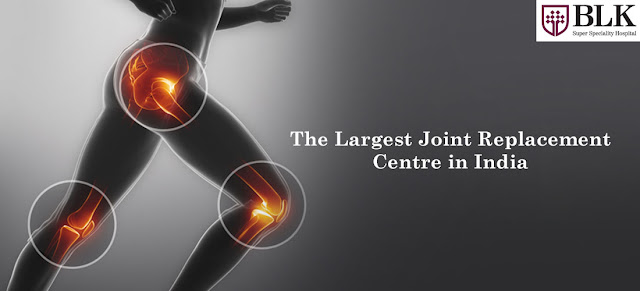All You Should Know About Joint Replacement
Surgery is always the last option
after physical therapy and medical treatment. Similarly, joint replacement
surgery is often opted by people when your body does not respond to other
medical treatments. However, it is considered as a highly effective way of
eliminating joint pain, correcting a deformity, and helping improve the
patient’s mobility (movement). Commonly orthopedics and joint replacement surgery are performed
to treat advanced arthritis.
People who often have severe joint
pain, stiffness, limping, muscle weakness, limited motion, and swelling undergo
joint replacement surgery. However, there are certain factors which determine
the surgery like the joint that is affected and the amount of damage, patients
may have trouble with ordinary activities such as walking, putting on socks and
shoes, getting into and out of cars, and climbing stairs. However, hip and knee
replacements are the most commonly performed joint replacements, but
replacement surgery can be also performed on other joints, as well, including
the ankle, wrist, shoulder, and elbow.
Causes of joint problems
However, osteoarthritis and
rheumatoid arthritis are the most common causes of the joints not working
properly.
Here are certain causes which leads joints
- Heredity
- Problems with the development of the joint
- Genetic (inherited) tendency
to - Minor repetitive injuries
- Severe trauma to the joint cartilage
What are the types of joint replacements?
Majorly the joint replacement surgery
is performed of two body parts:
- Knee replacement
- Hip replacement
Knee replacement
Knee replacement can be defined as a
procedure that involves replacing an injured or ailing knee with an artificial
joint, or prosthesis. The procedure involves the replacement of your old knee
and with a prosthesis usually taking less than two hours, but recovery and
rehabilitation can last months. At the time of selecting prosthetic knee, this
can be determined by the various factors like age, weight, activity level and
overall health.
However, Knee replacement in India is quite common as elderly people often face the knee joint
problem suffering from pain. There are many super speciality
What before and after the knee
replacement surgery?
The preparations involve the medical
examination of your overall health and anaesthesia
- Your medical history
- Physical examination
- Blood tests
- X-rays
- Other imaging tests
On the other, it is very imperative
to take the utmost care and precautionary measures after the surgery as the
success of its majorly depends on it. However, in the initial period of
post-surgery, your leg will feel stiff experiencing some pain. However, the
patients usually consume painkillers through your vein, that helps manage this
pain.
4 preventive measures that you should take post-surgery:
- Physical therapy
- Putting less weight post-surgery
- Climbing one stair at a time
- Right body positioning
Hip replacement
Hip replacement surgery can be
defined as a procedure which involves surgical removal a painful hip joint
suffering with arthritis and replaces it with an artificial joint often made
from metal and plastic components. It can be an option for you if your hip pain
interferes with daily activities and more-conservative treatments haven't
helped or are no longer effective.
Pre-surgery preparations
The surgeon will evaluate the
following:
- Medical history and current medications
- Blood test and physical examination to know you are fit for the
surgery
- Order blood tests, an X-ray and possibly an MRI
Post-surgery effects
Usually, after the surgery, there
will be an increased risk of blood clots in your legs.
3 possible measures to prevent this
complication include:
- Slow but increase in movement
- Pressure application
- Blood-thinning medication
- Regular physical therapy
So, if you are planning to undergo
any of the above replacement surgeries than should get proper treatment from
the Best hospital in India.




Comments
Post a Comment